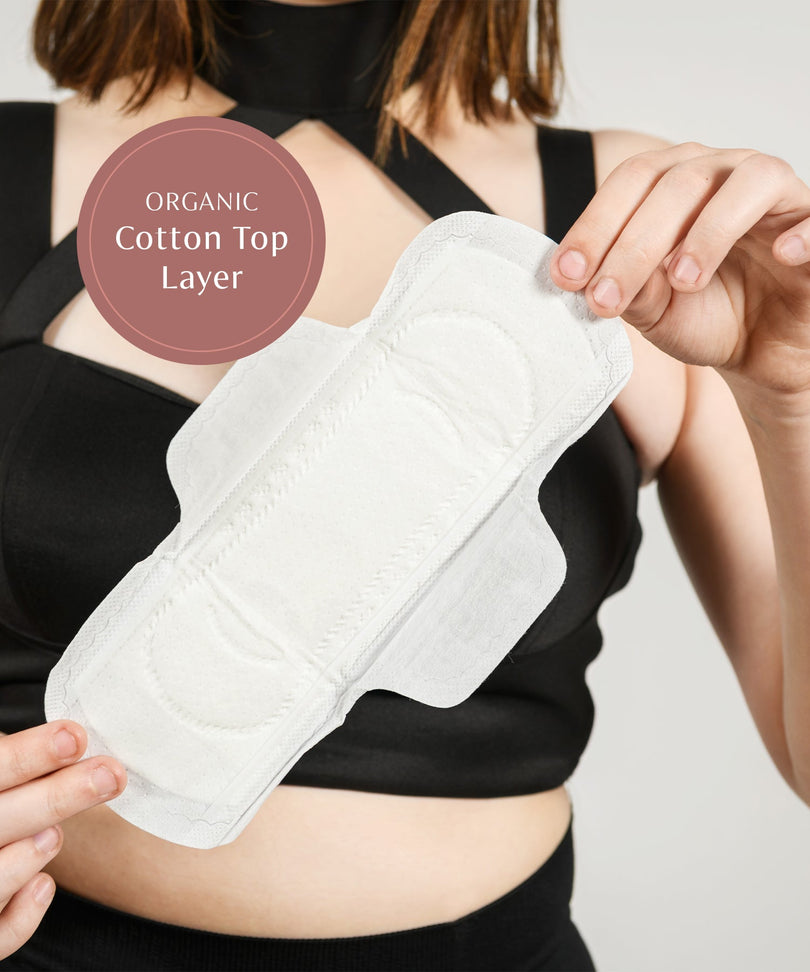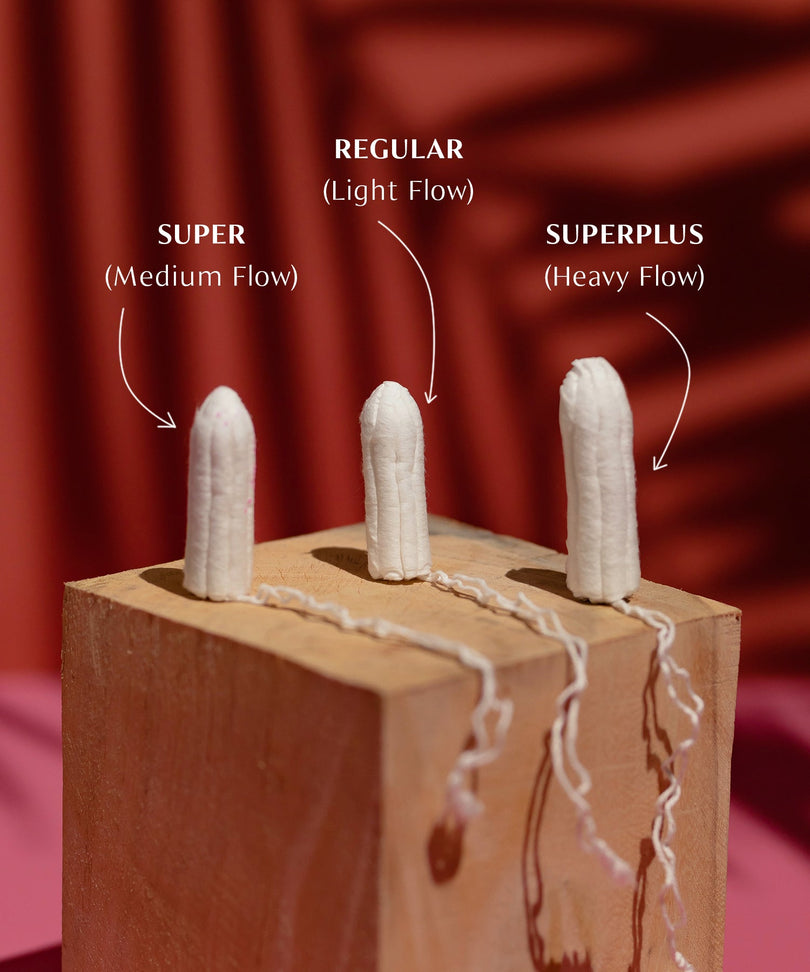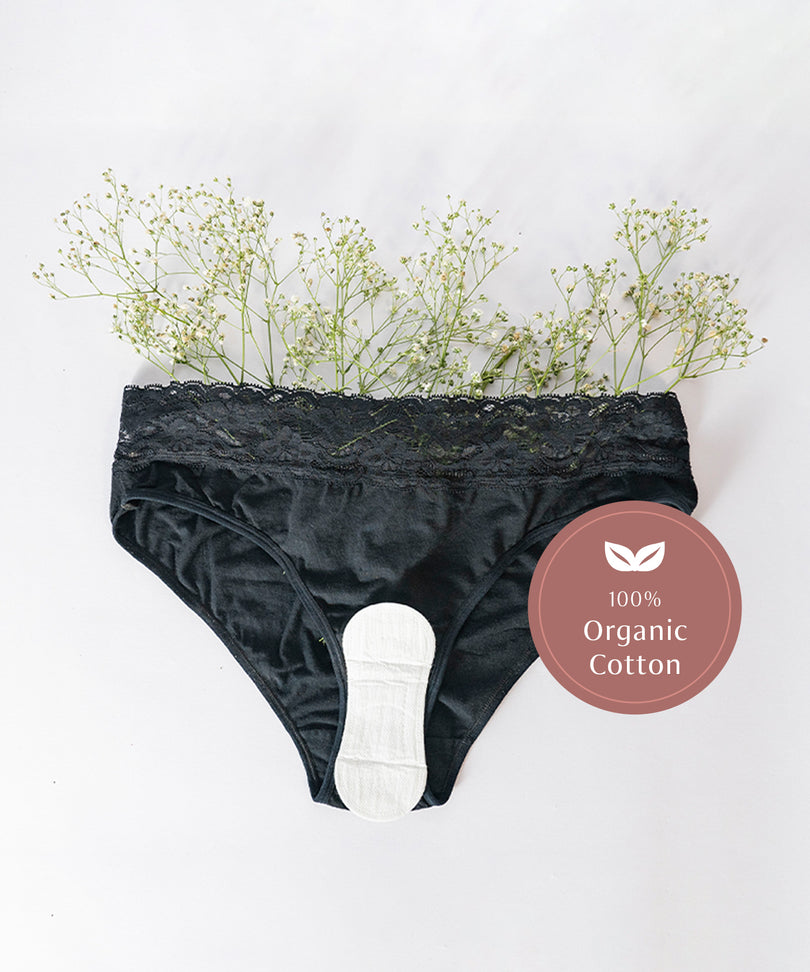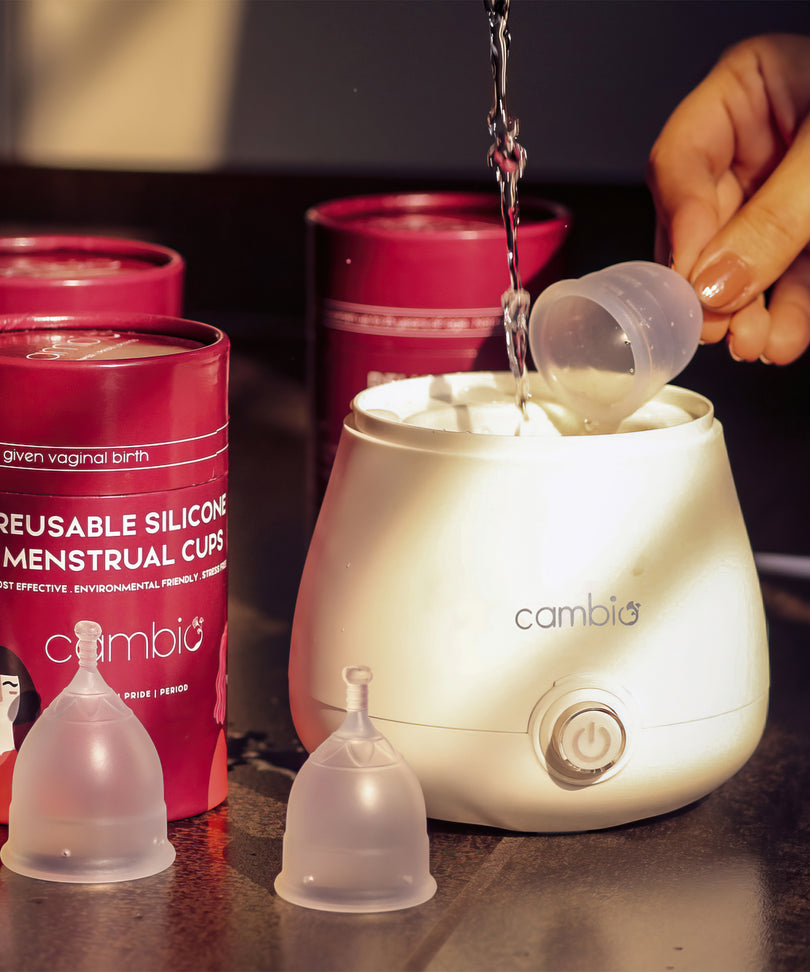The world of sexual health and contraception has questions that arise from the unknown concept of reproductive well-being.
One particular question that surfaces is:
Can sperm go through a sanitary pad?
This question might stem from a genuine desire to understand the concerns surrounding potential pregnancy risks.
By uncovering facts and busting myths, we're here to shed light on whether sanitary pads provide a shield against sperm and the possibility of unplanned pregnancies.
Nope, sperm can't sneak through a sanitary pad! These pads are like superheroes designed to handle a crucial mission: absorbing our menstrual flow and preventing leaks.
Picture the pad's absorbent core as a super-absorbent sponge, made of cotton, cellulose, and special polymers that are experts at soaking up liquids. When these materials team up, they create a powerful shield that doesn't let anything easily pass through, acting like a fortress guarding precious treasure.
But wait, there's more! The backside of the pad is like a waterproof raincoat. It's made of materials that don't allow any liquid, including sperm, to pass through. It's like an impenetrable barrier.
And the sticky side? It's like a loyal friend that sticks with you no matter what. This friend ensures the pad stays right where it should be, providing you with the protection you need. So, when it comes to sperm and sanitary pads, rest assured – the pad's got it all under control!
Also read - Are scented pads bad?
Now, what about the worries of sperm causing a surprise visit?
Here's the scoop: Even if someone (or something) spills sperm directly onto the pad, it's got quite a journey to make.
Our bodies are like a maze with different paths – one for a pee, one for periods, and another for sperm to meet an egg.
The entrance for sperm called the vaginal opening, is a bit farther back than where the pad sits.
Plus, the pad's fortress-like design and the body's natural setup make it difficult for sperm to move around.
The pad is here to do its job – keeping you comfy and safe – and it's not giving sperm a free pass.
Also read - Different tampon sizes
Could sperm on the outside of a pad lead to pregnancy?
Well, here's the reassuring part – concerns about pregnancy risk from sperm on the outer surface of the pad are minimal.
It is because of the protective layers that sanitary pads have.
The materials used in the pad's construction act as a formidable barrier that prevents most external substances, including sperm, from going through the multiple layers to enter the vaginal canal.
But what if things get a bit more direct? Imagine ejaculation occurs directly onto the pad.
Even in this scenario, the chances of sperm going from the pad to the vagina and further up to fertilize an egg are exceedingly unlikely.
Why?
Because the pad, with its absorbent core, waterproof backing, and adhesive sides, forms a tight shield that makes it pretty darn tough for sperm to navigate.
Also read - Things you should avoid during periods
A Safer Approach:
While it's clear that sperm doesn't easily pass through a sanitary pad's defense's, it's essential to remember that there's still a potential for pregnancy, especially when it comes to that time of the month.
Menstruating doesn't necessarily mean you're in the clear for pregnancy risks. That's why opting for safer alternatives, like contraceptives or condoms are crucial.
Contraceptives offer an additional layer of protection that ensures you're taking extra steps to prevent unintended pregnancies.
So, while we explore the dynamics between sanitary pads and sperm, it's equally important to consider the broader context of reproductive health and take proactive measures to stay informed and safeguarded.
Contraceptives offer an additional layer of protection that ensures you're taking extra steps to prevent unintended pregnancies.
Choosing the correct contraceptive method is a proactive way to take charge of your sexual health.
There are multiple options like condoms, birth control pills and more.
Each method has benefits and considerations, so it's essential to consult with a healthcare professional to find what works best for you.
Additionally, practising safe sex by using condoms consistently and correctly helps prevent unintended pregnancies and offers protection against sexually transmitted infections (STIs).
Open communication with your partner about contraception and sexual health is essential for a safe and fulfilling sexual experience.
Also read - Do organic pads help with cramps?
Conclusion: Can Sperm Pass Through Sanitary Pads?
As we journey through the intricate interplay between sanitary pads and sperm, we should view the broader landscape of reproductive health.
Armed with scientific insights, proactive contraceptive choices, and a commitment to practising safe sex, we should be confident to navigate sexual well-being with knowledge, confidence, and care.
By embracing these principles, we empower ourselves to make informed decisions that uphold our reproductive wellness and pave the way for a healthy, fulfilling life.
Read more






